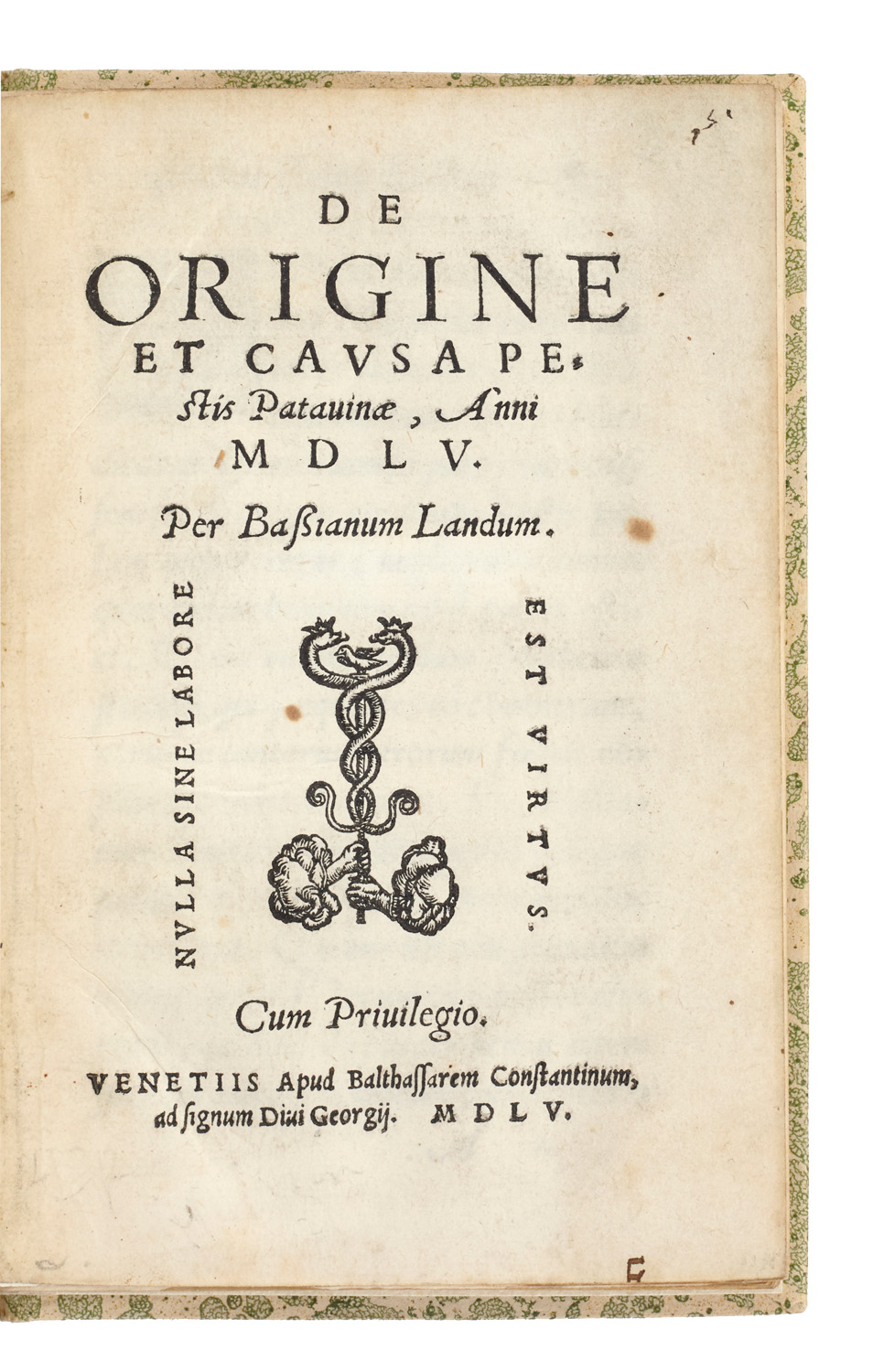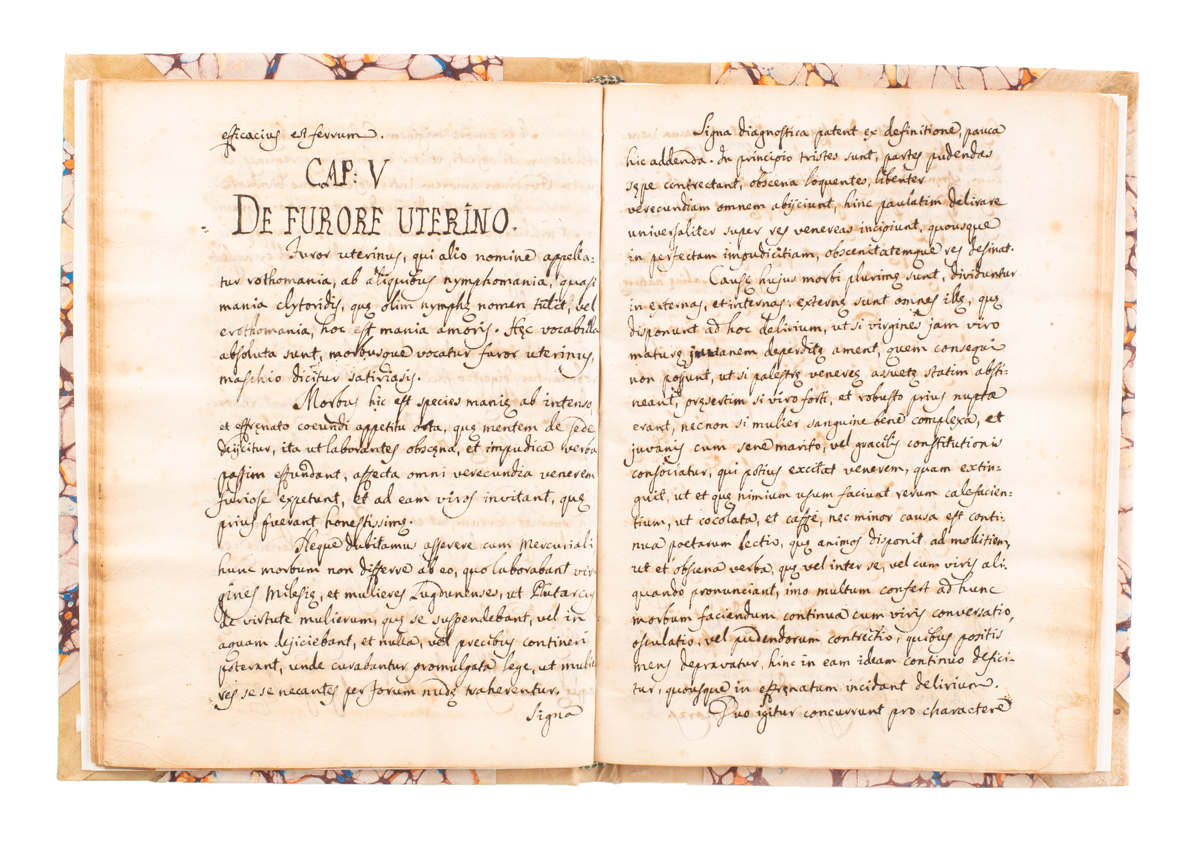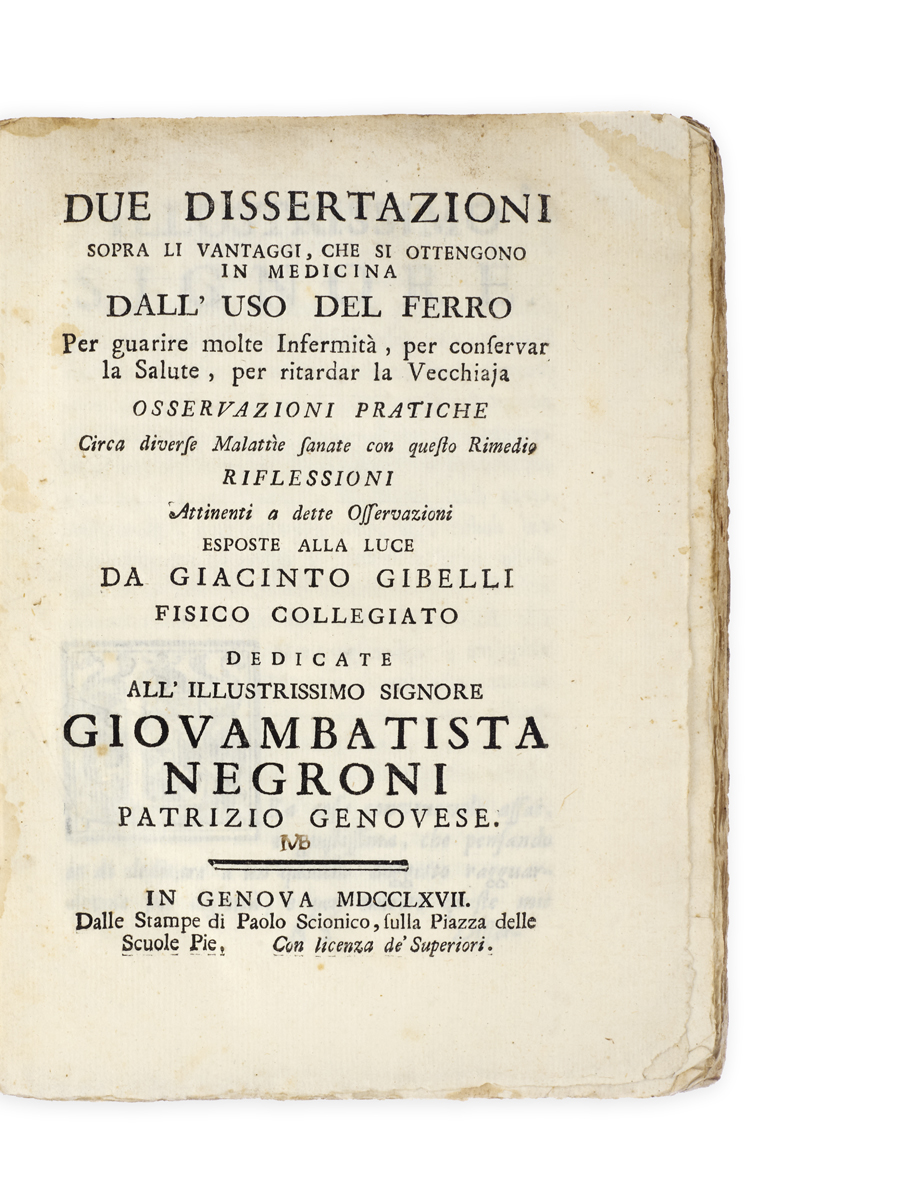
PLAGUE BLAMED ON WAR AND FAMINE
LANDI, Bassiano.
De origine et causa pestis Patauinae, anni MDLV ...
Venice, apud Balthassarem Constantinum (colophon: ‘Ioan. Gryphius excudebat’), 1555.
12mo, pp. [54], [2 (blank)]; printer’s device to title, woodcut initials, in italic throughout; 2 small spots to title; very good in recent marbled boards, lettering-piece to spine; a few instances of near contemporary underlining and marginalia (to last few pages).
First edition of this important work investigating the causes of the plague which struck Padua in 1555, by the eminent, and controversial, professor of medicine Bassiano Landi (d. 1562). In his De origine Landi argues against the then popular belief that the plague had been caused by putrid air (noting that, for one thing, this theory did not explain why mortality among the poor was higher than among the nobility), or that it arose from the water supply or from the land. Instead Landi finds the origins of the disease in the destruction caused by the war waged in the region by Francis I, which had prompted famine and forced people to eat corrupted food. Landi also identifies two groups particularly affected by the plague: those wearing infected garments, and the poor. The De origine ends with discussion of medicinal remedies against the disease, considering those suggested by ancient writers, and, more practically, recipes using common garden plants.
The son of a doctor, Landi studied philosophy and medicine at Bologna, while giving private tuition in Greek and Latin, before becoming professor of philosophy and of practical and theoretical medicine at the university of Padua. He moved in Erasmian and Protestant circles and became embroiled in several controversies (on the mortality of the soul, for example), being stabbed to death in front of his house in 1562. His works – which include De humana historia (1542) and Iatrologia (1543) – demonstrate his fight against medical superstition and sophisms, and his belief in the primacy of experience as the only true teacher.
Durling NLM, 2716; not in Wellcome.

